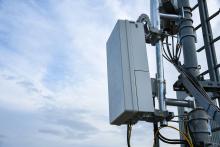A study released this week says that small- to medium-size businesses are key to the growth of worldwide broadband services, which makes some sense. Larger enterprises mostly have what they need for the time being, while the small-business market is still somewhat underserved. The report, by In-Stat/MDR, says that high-density areas (read: cities) such as New York, Seoul, and Hong Kong are likely to drive most of that expected growth.
That's all just ducky -- if your SMB enterprise is located in a big city. But what if you're in the boonies? Another recent report by market researchers Frost & Sullivan estimates that 40 percent of U.S. businesses are not likely to ever get access to standard cable or DSL broadband, based on the existing infrastructure. That's not exactly a case of the entrepreneurial spirit being served by the broadband market.
Fortunately, technology is once again leaping to the rescue. In one immediate form, satellite-over-broadband is filling the gap. Larger carriers -- such as Hughes Network Systems, Equant, and Alcatel, joined by some quick-moving startups -- are working to beef up satellite-based service and market it to those poorly wired areas. Hughes is touting the Telecommunications Industry Association's Internet Protocol over Satellite (IPoS) standard, approved late last year, as the best open offering upon which to base service delivery.
Even more intriguing, perhaps, are test projects to deliver broadband over power lines (BPL). The project, being conducted by Progress Energy, Earthlink, and Amperion, has attracted the interest of the Federal Communications Commission and chairman Michael Powell. The FCC, in fact, has already moved to ease rules that might hamper BPL adoption. And Amperion is actually running a Wi-Fi network over power lines in Sault Ste. Marie, Ont., which covers the entire city. The advantage of BPL is that the basic infrastructure of power lines already exists, avoiding billions of dollars in build-out costs.
Soon, it may not matter where a business is located -- or whether the phone lines can support DSL. SMBs in the sticks, rejoice!








